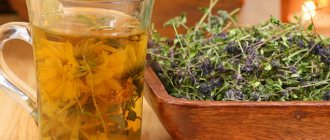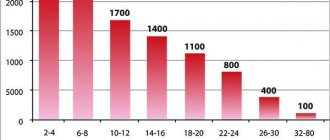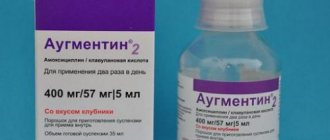It's no secret that it is advisable to breastfeed children for as long as possible. After all, this is not only healthy nutrition for the child, but a natural recovery process for the female body after childbirth. But each woman’s physiology is different; there are times when a nursing mother has to stop the feeding period. Sometimes the situation is so critical that a woman simply does not have time to make it easier for the child to end breastfeeding. If you need a quick solution to the problem, lactation pills come to the rescue. But how harmful this method is for the baby and women’s health is worth clarifying.
First, you should consider all possible methods for natural weaning and only if there are medical indications, resort to emergency measures to stop breastfeeding using special medications.
Reasons for artificial suppression of lactation
Such emergency measures should not be in any way connected with the independent decision of a nursing mother due to the fact that she experiences pain during breastfeeding or is simply tired of breastfeeding. Here we need a more serious reason, because from an abrupt cessation of feeding not only the mother herself suffers, but also the further development of the baby. To subject the body to such powerful stress, the following indications for taking medications are required:
- Inflammation of the mammary glands. Constant lactostasis with the subsequent development of mastitis, accompanied by fever and purulent discharge, any inflammatory process. When the potential risk to the mother's health is greatly increased, and sometimes even requires a surgical solution, the nursing mother is advised to stop guarding.
- Severe illnesses that prevent breastfeeding. If, during or before pregnancy, the female body is affected by tuberculosis, HIV infection or any other diseases in which there is a risk of infection of the newborn through mother's milk, then breastfeeding is interrupted immediately after birth.
- Oncology. If after giving birth a woman has to undergo a course of chemotherapy or radiation, then doctors recommend not to start breastfeeding, but to take pills to stop milk production.
- Death of a baby. In the event of a birth with such consequences, the mother will no longer need breast milk, and its excess can cause even greater harm to health, so lactation is stopped by taking medications.
- Late pregnancy termination.
Basic rules for good lactation
Breastfeeding is the most common way of feeding a newborn baby. It is necessary in order to provide the baby with the necessary substances, as well as adapt the sterile intestines to a new type of nutrition and populate it with bifidobacteria.
During different periods of pregnancy, under the influence of hormones, the mammary glands produce colostrum; after childbirth, it becomes mature milk. Promoting good lactation levels begins in the maternity hospital.
What requirements must be met:
- putting the baby to the breast immediately after birth;
- a calm, supportive atmosphere during feeding;
- correct attachment to the breast (the baby must grasp the breast in a special way);
- feeding on demand (this stimulates milk flow);
- feeding not only during the day, but also at night;
- selection of comfortable underwear, clothes that should not constrict the chest or cause discomfort;
- proper maternal nutrition, fluid intake.
Operating principle
All medications aimed at suppressing milk production are divided into 3 categories:
- Homeopathy - active ingredients are plants.
- Non-hormonal drugs - drugs that do not affect changes in hormonal levels, affecting the nervous system, lead to suppression of lactation.
- Hormonal group of drugs - stop milk production by affecting hormone levels.
Nature arranges it in such a way that the female body itself regulates the production of the hormones estrogen and progesterone during pregnancy, and after childbirth - oxytocin and prolactin, on which the lactation process directly depends. Taking hormonal drugs to reduce milk production disrupts their physiological balance. Excess estrogen in the body (one of the fundamental components of such drugs) leads to a decrease in the production of prolactin, which, in turn, leads to a decrease in milk production.
Tablets to suppress lactation
There are two types:
- Steroid hormonal drugs. The medicine contains hormones with almost identical effects to the hormones produced by the body itself. To limit milk production, agents based on gestagen or estrogen, which affect prolactin, are prescribed. These medications have similar side effects and a number of contraindications, but their use is tolerated differently. The following names are classified as steroids: - Microfollin - an estrogen-based product that is well tolerated by the digestive system. Microfollin is recommended because of its quick effect, but it should not be taken by mothers with liver and blood diseases, or thrombophlebitis. In addition to stopping lactation, it is aimed at treating prostate cancer in men, and also relieves acne on the face; — Norkolut. The active ingredient is norethisterone. A broad-spectrum drug in the progestogen category. The drug acts on the uterus, transferring it to a secretory state, when, under the influence of the pill, the pituitary hormone is not produced and upcoming ovulation is suppressed. A significant disadvantage with a long course of use is the risk of developing thrombosis; — Duphaston. The main component is dydrogesterone, which has similar functions to progesterone. Helps replenish female hormones in the body of a nursing mother, which is why the female reproductive system begins to function normally, which is what is required from drugs that stop lactation. The disadvantages include the appearance of bleeding, but such a complication is treated with the same medicine, increasing the dosage. To receive recommendations for taking such a drug, it is worth undergoing an examination to determine the state of a woman’s hormones, since the use of Duphaston can lead to cycle failure or provoke the development of a tumor.
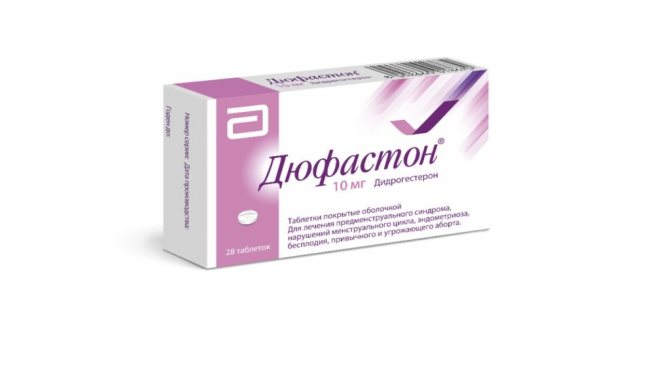
Duphaston is one of the most common steroid hormonal drugs used for emergency termination of lactation. - Non-steroidal hormonal drugs. They stimulate receptors sensitive to dopamine or promote its accumulation, which causes much less prolactin to be produced, which leads to a reduction in lactation. In addition, non-steroidal drugs with dopamine (the founder of adrenaline) affect oxytocin, which also slows down milk production. These are drugs such as: - Dostinex (Cabergoline is the second native name of the drug). Tablets that are taken immediately after labor act on the hypothalamus, they reduce the release of prolactin and hormones associated with lactation. If the prescribed dosage is not followed, the tablets have a number of side effects. They can cause migraines and headaches, and among the positive characteristics they note their rapid effect with a minimum dosage; - Bromocriptine . Belongs to the alkaloid group of drugs; suppression of milk production occurs due to the effect on the hypothalamus. It has a wide range of applications - from treating infertility to eliminating mastopathy or cysts. Do not take if you have low blood pressure, stomach or heart diseases; — Parlodel . Recommended in cases where stopping feeding must be urgent. At the same time, taking Parlodel restores the balance of estrogen and progesterone, which prevents the appearance of tumors in the breast area. The disadvantage of the drug is that taking tablets excludes the use of drugs to narrow blood vessels, and in addition there is a wide list of side effects. On the other hand, Parlodel has an affordable price and high efficiency.
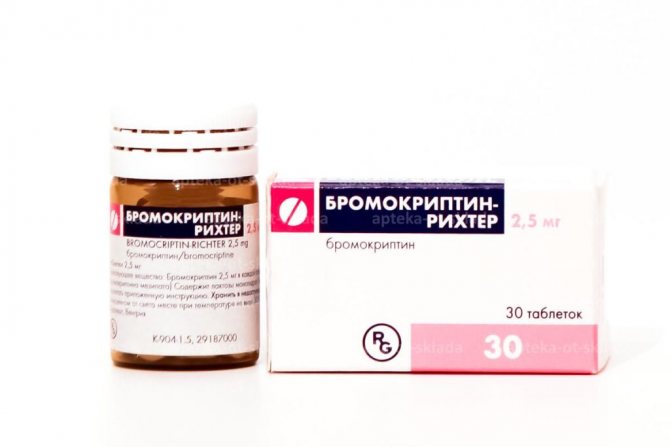
Among non-steroidal hormonal tablets for lactation, Bromocriptine (pictured) and Dostinex are widely used.
Medicines to stop lactation
Breastfeeding is determined by the activity of hormones. That is why most drugs aimed at suppressing lactation are hormonal. Their task is to influence the production of prolactin and oxytocin, which are responsible for the formation of milk in the breast.
Drugs to stop lactation are prescribed by a gynecologist or mammologist based on the duration of breastfeeding, the woman’s health status and her individual characteristics.
Dr. Komarovsky advises completing breastfeeding with the help of modern medications and under no circumstances tightening the mammary glands, as this threatens the development of complications. And he also recommends reducing fluid intake while weaning the baby so as not to provoke milk production.

If you decide to use special medications to complete lactation, be sure to consult your doctor.
Table: drugs used to suppress lactation in women
| Drug name | Release form | Active substance | How to use | Contraindications |
| Bergolak | Pills. | Cabergoline (has a pronounced and long-lasting prolactin-lowering effect). | The drug is taken orally during meals in order to:
|
|
| Dostinex | ||||
| Alaktin | ||||
| Cabergoline | ||||
| Agalathes | ||||
| Utrozhestan | Capsules. | Natural micronized progesterone (suppresses the production of oxytocin, which affects lactation). | The drug is taken orally. The dosage and duration of therapy are prescribed by the doctor. |
|
| Duphaston | Pills. | Dydrogesterone (analogue of natural progesterone). |
| |
| Parlodel | Pills. | Bromocriptine (reduces prolactin secretion without affecting normal levels of other hormones). | Taken orally after meals to:
The exact dosage and duration of therapy is determined by the doctor. |
|
| Bromocriptine | The dosage is prescribed by the doctor on an individual basis. |
| ||
| Dobrokam | Pills. | Camphor bromide (sedative). | Taken orally after meals. The dosage for stopping lactation is calculated by the attending physician. |
|
| Bromcamphor | ||||
| Sinestrol | Injection. | Hexestrol (synthetic estrogen). | Injections are given in a hospital setting. The doctor selects the dosage and duration of therapy individually. |
|
| Norkolut | Pills. | Norethisterone (synthetic female sex hormone, progestogen analogue). | Taken orally to:
The exact dosage and duration of therapy is determined by the doctor. |
|
Photo gallery: tablets and solutions prescribed for women
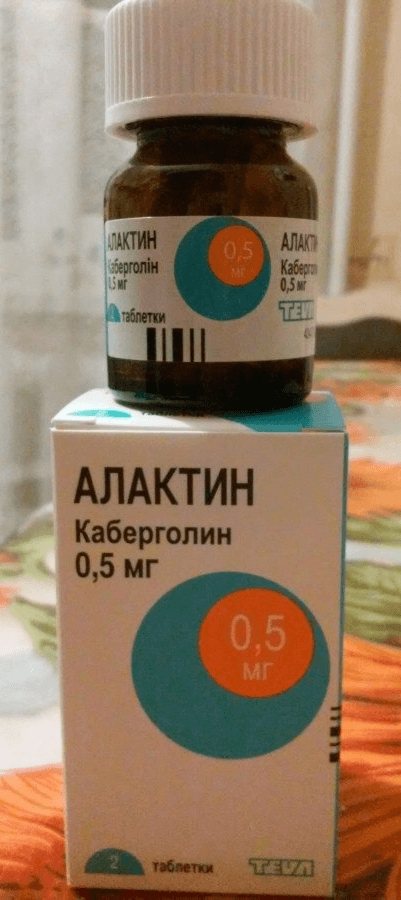
Alactin - tablets that reduce prolactin production
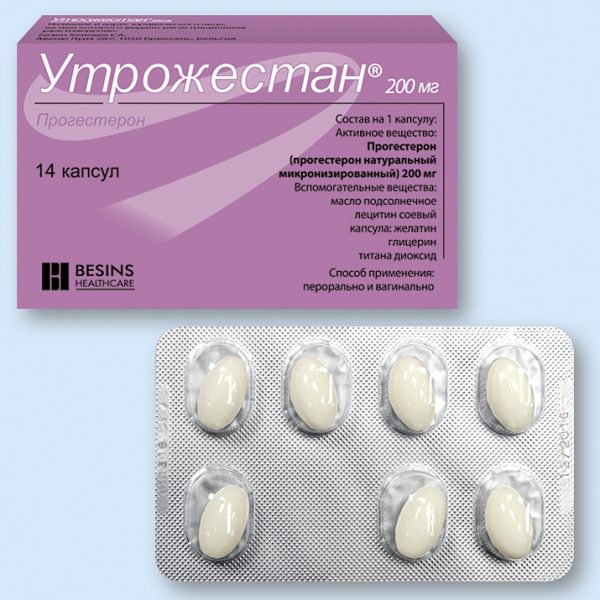
Utrozhestan is a hormonal drug that can suppress breast milk production.
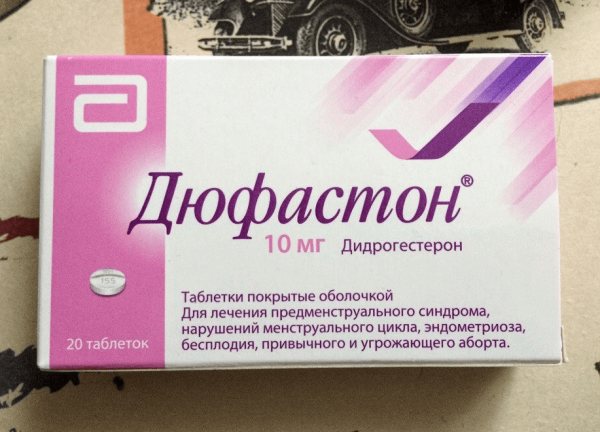
Duphaston is a medicine from Holland containing a synthetic analogue of progesterone.
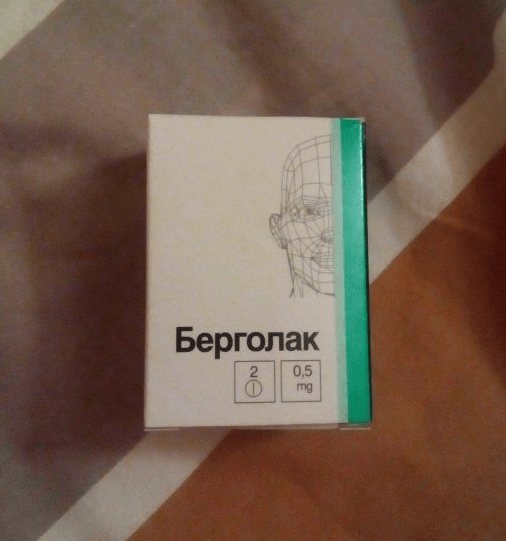
Bergolak - cabergoline-based tablets made in Russia
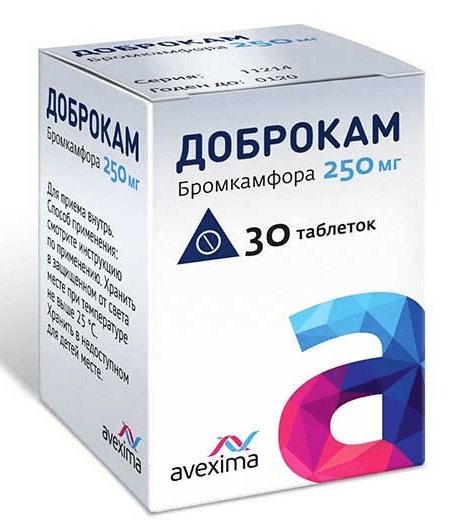
Dobrocam is an analogue of the drug Bromcamphor, produced in Russia
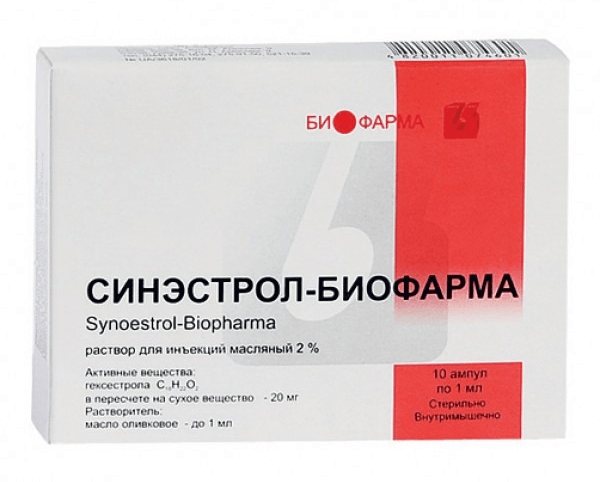
Sinestrol is a hormonal drug in the form of an injection solution
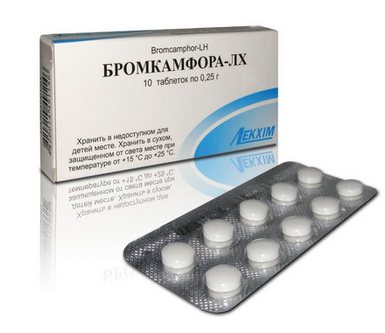
Bromcamphor is a sedative that helps reduce breast milk production.
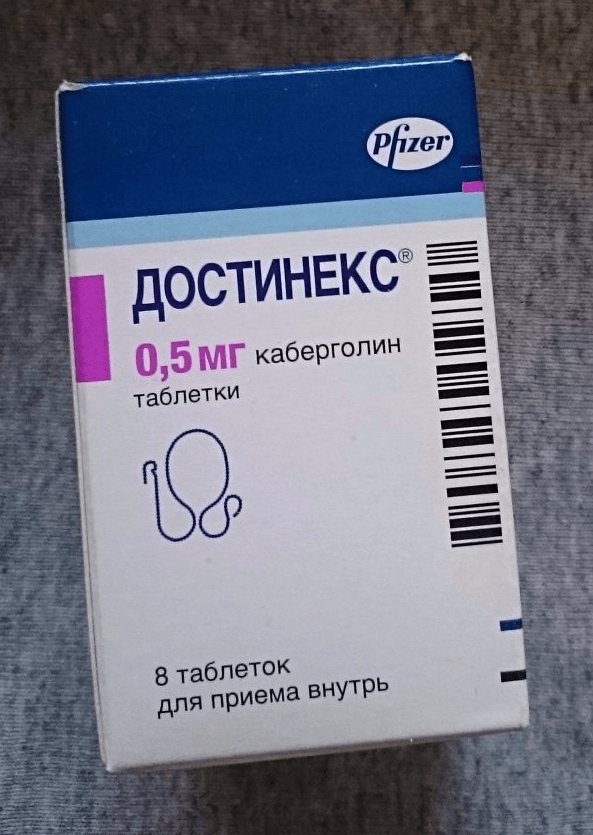
Dostinex - tablets for completing lactation, in high demand
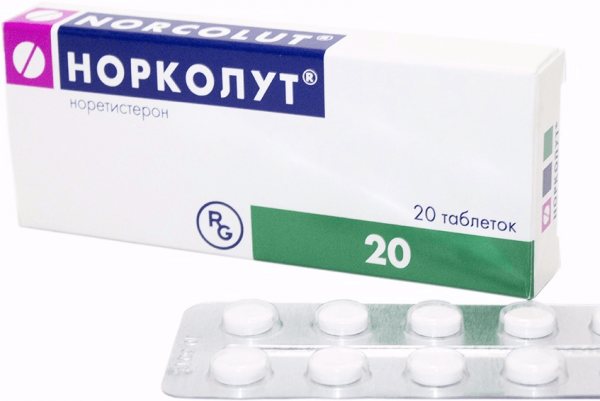
Norkolut is a synthetic hormonal drug from Hungary
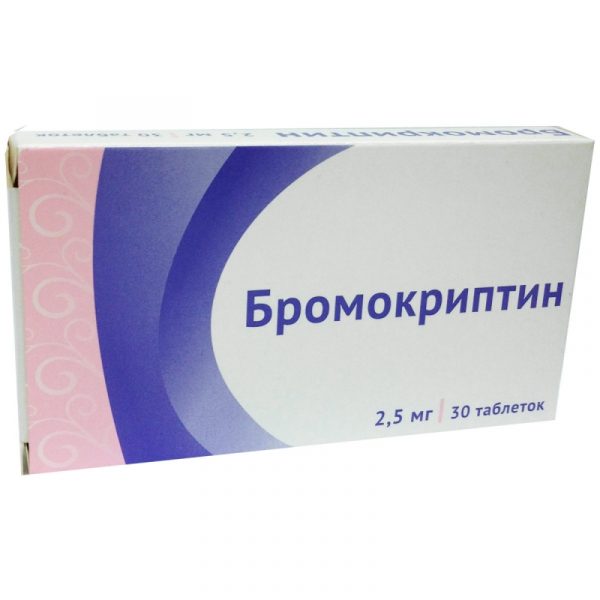
Bromocriptine is a drug commonly prescribed to women to suppress lactation.
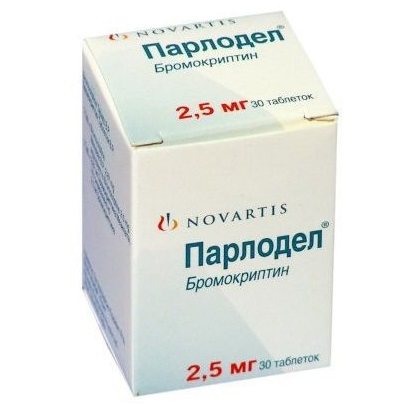
Parlodel - an analogue of Bromocriptine from India
Contraindications
Any medication should be taken only after examination and prescription by a doctor. In this case, it is necessary to exclude a new pregnancy. If a woman does not menstruate while breastfeeding, this does not mean that there is no possibility of becoming pregnant again. Often, interruption of breastfeeding is associated precisely with the appearance of a new fetus, and in this case, taking anti-lactation drugs is unacceptable. Also, after taking pills that reduce milk production, you should not think about your baby for at least one month.
Gastritis, ulcers, concomitant diseases of the liver and kidneys are also considered grounds for refusing to take such drugs. Emergency medications should never be taken without a doctor’s recommendation, much less change the indicated dosage. As stated above, you should not combine tablets with traditional medicine or other drugs to enhance the effect. This, on the contrary, can lead to the development of lactostasis.
As soon as the nursing mother takes the first pill, the child is immediately weaned off the breast; there cannot be a smooth weaning.
Which lactation pills are best to buy?
If there is not enough breast milk, an experienced medical specialist will tell you what to do. In this case, a medication of a certain composition is selected individually, solving the problem at the root. The VyborExpert team presented several types of products - dietary supplements, homeopathic herbal medicines, food products with enriched composition. All of them are effective and safe, but a comparative analysis showed how they differ from each other:
- Apilak is a homeopathic natural immunomodulator with a general strengthening effect;
- Mlekoin - small granules of plant composition that increase lactation by 40-50%;
- Laktogon is a lactogonic dietary supplement with iodine and ascorbic acid;
- Femilak - a milk mixture with 13 vitamins, 12 minerals to nourish the body;
- Milky Way is a fast-acting nutritional formula;
- Leptadene is the fastest effect of a dietary supplement on the body.
All of the named drugs for milk lactation are good; they demonstrate high demand among buyers and a level of trust among medical specialists due to their naturalness, safety for health, balanced formula and proven effectiveness. They must be used strictly according to the instructions. What to buy from the list should be guided by personal motives, taking into account the characteristics of your body.
Folk remedies to stop lactation
Some people believe that when weaning a baby from the breast, all means are good, including folk remedies. Therefore, some women, in an attempt to stop breastfeeding, completely cover access to the breast - wear thick turtlenecks and long-sleeve sweaters so that the baby does not come into contact with the mother’s breast. But clothes alone are unlikely to help, so you should show as much love to your child as possible, for example, do not listen to advice about spending a few days at grandma’s. This will further irritate the already stressed child. And in order to stop milk production over time, mothers are advised to:
- Infusions of herbs that have a diuretic effect - lingonberry, jasmine, parsley, mint. Lack of fluid in the body will gradually reduce milk production to nothing. Sage is considered particularly effective - its infusion will stop discharge in a couple of days.
- Compresses. Ice cubes or frozen water with mint added are wrapped in a diaper and applied to the chest.
- Tight chest wrap. Now it is considered an outdated, useless and very dangerous method for a woman, but still some mothers resort to it. The chest is bandaged tightly enough with a diaper or towel. For several days, it is worth decanting the breasts until they are relieved in order to avoid lactostasis, mastitis and breast swelling.
- Cabbage leaf compress. The cabbage is soaked or crushed and applied to the chest. The compress should be repeated throughout the week.
Anti-lactation tablets have been used relatively recently, but the pharmaceutical market already has both positive and negative reviews about this treatment. Nevertheless, it is worth first making all possible attempts at natural weaning and only if there are medical indications, resort to emergency measures to stop guarding. If you are prescribed such tablets, listen to your doctor’s recommendations and adhere to the recommended dosage. Then this process will be painless for both mother and baby.
How to use tablets to stop lactation according to instructions
The use of drugs to suppress lactation has its own characteristics. All breastfeeding experts recommend taking pills only for medical reasons (prescription of drugs incompatible with breastfeeding, purulent mastitis, stillbirth, miscarriage in the third trimester, and others). If a woman considers it necessary to wean her child from the breast at her own request, then this should be done by gradually reducing the production of nutrient fluid. This approach will reduce psychological discomfort for both the baby and the mother.
If a woman starts taking any pills to stop lactation, then we must not forget about two important rules:
- It is prohibited to take medications simultaneously with medicinal herbs;
- It is unacceptable to take medications and continue to breastfeed the baby.
The use of Dostinex, Bergolak and other drugs based on cabergoline
To stop the production of milk in the mammary glands, drugs based on cabergoline need to be taken only for two days, twice a day, half a tablet. At the same time, changing the frequency of use and dosage is prohibited, as this increases the likelihood of side effects. If there is a need to suppress the production of nutrient fluid, then 2 tablets are prescribed once on the first day after childbirth or late miscarriage.
Preparations based on cabergoline are available in 2 and 8 tablets per package. To suppress breast milk production, there is no need to buy a large pack, two are enough.
Duration of therapy and dosage of Bromocriptine
The duration of use of Bromocriptine is 2 weeks. According to the instructions, you should take the tablets in the morning and evening: on the first day, half the tablets, and then for another 14 days, the whole tablet. After completing the course of therapy, a slight release of milk may occur 2–3 days later. In such a situation, it is recommended to use the drug for another 1 week at the same dosage. If treatment is necessary immediately after childbirth or abortion, then it is important to wait until all vital functions of the body have stabilized (as a rule, it is enough to wait 4 hours), and only then take the medicine.
Often after childbirth, severe breast engorgement is observed in the first days. In such a situation, Bromocriptine is also prescribed. You only need to take one tablet, repeat if necessary after 6-12 hours. A complete cessation of lactation does not occur, and the woman will be able to continue breastfeeding her newborn.
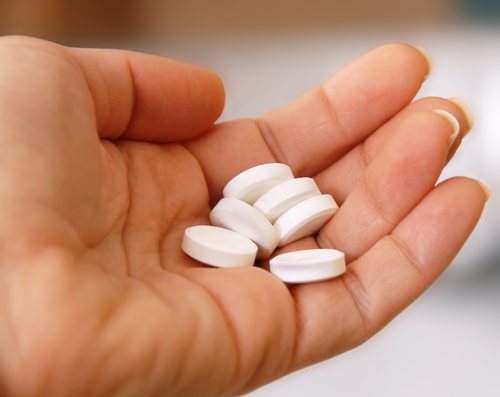
When taking pills, you must strictly follow the dosage recommended by your doctor.
How to properly inhibit lactation with Sinestrol
Sinestrol is administered intramuscularly, so it is advisable to use it in a hospital. To suppress lactation, a dosage of 0.1% is used. Inject the solution 1 ampoule twice a day. The duration of therapy reaches 1 week. The drug is also used to reduce breast milk production. For this purpose, the medicine should be used for two days, 1 ampoule of 0.1% per day.
Norkolut to stop breast milk production
The dosage and duration of use of Norkolut depends on the purpose for which the drug is taken:
- To prevent lactation after an unsuccessful pregnancy, 7 days of therapy is sufficient. On the first day you should take 3 tablets, on the second and third - 2 tablets each, and on the fourth to seventh days - 1 tablet if the pregnancy ended at 16-28 weeks, or 2 tablets if the pregnancy ended at more than 28 weeks;
- To suppress lactation, 10 days of therapy are required. From days 1 to 3 take 4 tablets per day, from days 4 to 7 - 3 tablets, and from days 8 to 10 - 2.
Features of the use of Bromcamphor
You need to take Bromcamphor three times a day, 1-2 tablets after meals. Unlike other drugs, its use is not prohibited along with feeding, that is, after starting therapy, the baby can continue to be put to the breast, and the amount of milk will decrease and then disappear completely naturally. The drug inhibits the reaction, so during therapy you should avoid driving a car and performing work that requires increased attention.
Before using any drug, you should consult your doctor.
Reviews of anti-lactation products
Bromocretin or Parlodel... The first one helped me. Within 14 days the milk was gone.
Ty [email protected] Nadezhda
https://www.babyblog.ru/user/Mhehetpabhbix/2721385#comm_141657333
I’ve been taking Bromocriptine tablets for three days, but they’re making me sick, with fever and chills, so I need someone to help with the child. And she tied it up with a diaper. A week later everything went away, nothing hurt. But there was milk in the breast for about a month.
Tanya
https://www.babyblog.ru/user/ogkwwkmk/2994752#comm_152169875
Well, the first time I drank Parlodel, it helped me. True, before that I also had my breasts tightened, but then they told me that I shouldn’t have done that.
Oksana
https://www.babyblog.ru/user/ogkwwkmk/2994752#comm_152169875
I took Dostinex, everything was fine. And I felt good (well, as far as possible with operated mastitis), and the cycle did not go wrong, in general, I did not feel any side effects. Then two doctors immediately recommended it to me.
Asp
https://deti.mail.ru/forum/nashi_deti/kormim_grudju/dostineks_prekrashhenie_laktacii/
I took Norkolut without a doctor's prescription. In the first days, the milk was very full in the chest, so I pumped twice a day until I felt relief. Then once a day. Then once every two or three days. After finishing taking the pills, the milk came out drop by drop, I didn’t express it, it burned out on its own.
Sanechka
https://forum.forumok.ru/lofiversion/index.php?t16261.html
Try to find Sinestrol. A cheap drug that stops lactation. I had a miscarriage at 21 weeks, and the doctor prescribed Sinestrol to stop lactation.
Olga
https://www.babyblog.ru/community/post/conception/1698435

